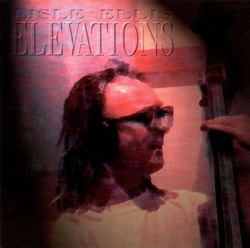
"Elevations is one of the very rare albums on which bassist Lisle Ellis assumes leadership. It was recorded in a San Francisco studio in June 1993. At the core of the instrumentation is Ellis' quartet, which includes Christopher Cauley a...
In Stock
Quantity in Basket: None
Log In to use our Wish List
Shipping Weight: 5.00 units
EU & UK Customers:
Discogs.com can handle your VAT payments
So please order through Discogs
Sample The Album:
Christopher Cauley-alto saxophone
Lisle Ellis-contrebass
Donald Robinson-drums
James Ruthier-electric guitar
Larry Ochs-sopranino saxophone, tenor saxophone
Joe McPhee-sopranino saxophone, tenor saxophone, trombone
Glenn Spearman-tenor saxophone
Click an artist name above to see in-stock items for that artist.
UPC: 777405002721
Label: Les Disques Victo
Catalog ID: VICCD027
Squidco Product Code: 23953
Format: CD
Condition: Sale (New)
Released: 1994
Country: Canada
Packaging: Jewel Case
"Elevations is one of the very rare albums on which bassist Lisle Ellis assumes leadership. It was recorded in a San Francisco studio in June 1993. At the core of the instrumentation is Ellis' quartet, which includes Christopher Cauley and Joe McPhee on saxophones and Donald Robinson on drums (this quartet is featured on the two free improvisations of the album, "Arc" and "Reach"). James Ruthier (electric guitar) and saxophonists Glenn Spearman and Larry Ochs guest on many tracks, augmenting the group to a septet for "Life Cycle," "P.B.'s Parable," and a spirited take on Albert Ayler's "Mothers." This line of fine blowers makes up for Ellis' average compositional skills. His pieces fall into the free jazz realm, going beyond the simple head-solo-head form, but still very anchored in the 1960s tradition. His playing has been mixed up front, something unusual for any jazz album, especially since it is not stellar; those who have some problems with his sloppy playing will find the introduction to "Ground" quite difficult to listen to. If originality is not the key on Elevations, at least the heart and the energy are there. The best moment happens in "Re: Call," when the bassist brings the piece down to a murmur -- very well executed. This album is more accessible and listener-friendly than most of the material he has recorded as Paul Plimley's sideman."-François Couture, All Music
Get additional information at All Music
Artist Biographies
• Show Bio for Lisle Ellis "Lisle Ellis, (born November 17, 1951) is a Canadian jazz bassist and composer who is known for his improvisational style and use of electronics. Ellis was born in Campbell River, British Columbia. Ellis began playing electric bass in his teens and worked professionally from an early age in numerous environments including studios, radio & TV shows, and strip clubs. He was born Lyle Steve Lansall, but used his initials L. S. as his stage name Ellis; he also used the name L. S. Lansall-Ellis professionally. Ellis studied at the Vancouver Academy of Music with Walter Robertson and attended Douglas College in Vancouver. He later studied at the Creative Music Studio in New York City from 1975-1979. Ellis lived in Toronto, Ontario, Canada from 1982 until 1983 and then Montreal, Quebec, Canada from 1983 until 1992. In 1986 Ellis was the first recipient of Canada's Fred Stone Award, given annually to a musician for integrity and innovation. In the early 1980s in Vancouver, and the late 80's in Montreal, Ellis was a conspicuous activator of musician alliance organizations, performance venues, and concert series presentations. One collective in particular, Vancouver's New Orchestra Workshop, is still active nearly thirty years later. After moving to the United States in 1992, he settled in San Francisco, working with Glenn Spearman from 1992 until 2001. He lived in San Diego from 2001Đ2005 and New York City from 2005 to the present. In 1994, he was a member of the Cecil Taylor band for a brief tour of California. Ellis's discography includes performances with Peter Brštzmann, Andrew Cyrille, Joe McPhee, Dave Douglas, Glenn Spearman and about 40 recordings for Music & Arts, Black Saint, DIW, Hat Art, New World, and Victo. His 1989 album, Kaleidoscopes: The Ornette Coleman Songbook, with pianist Paul Plimley, was given five stars in Down Beat magazine. Since the late 1990s, Ellis has been primarily focused on developing an electro-acoustic interface he calls "bass & circuitry". By 2008, with the completion of a template for this interface Ellis turned his attention back to acoustic music projects with an emphasis on jazz based improvisation and to finding a balance between his electronic and acoustic music interests. Central to Ellis's music, and a vehicle for both his electronic and acoustic experiments, has been his long standing trio with Larry Ochs and Donald Robinson called What We Live. Di Terra, an Italy-based trio with Alberto Braida (piano), and Fabrizio Spera (drums), has been an exclusively acoustic music vehicle for Ellis. His experimental trio Audible Means with Ellery Eskelin (saxophone), and Erik Deutsch (keyboards), was active on the New York scene in 2006 and 2007 and was a focal point for Ellis's bass & circuitry explorations. Since his arrival in New York, collaborations and interactions with composer/electronic musician Tom Hamilton have also been important to Ellis's work in electronic music." ^ Hide Bio for Lisle Ellis • Show Bio for Larry Ochs "Larry Ochs (b. May 3, 1949, New York City) is an American jazz saxophonist and composer. Ochs studied trumpet briefly but concentrated on tenor and sopranino saxophones. He worked as a record producer and founded his own label, Metalanguage Records, in 1978, in addition to operating the Twelve Stars studio in California. He co-founded the Rova Saxophone Quartet, and also worked in Glenn Spearman's Double Trio. A frequent recipient of commissions, he composed the music for the play Goya's L.A. by Leslie Scalapino in 1994 and for Letters Not About Love, which was named best documentary film at SXSW in 1998. He has also played in a new music trio called Room and the What We Live ensemble. He has recorded several albums as a leader. He formed the group Kihnoua in 2007 with vocalist Dohee Lee and Scott Amendola on drums and electronics, which released Unauthorized Caprices in 2010. He is married to the poet Lyn Hejinian." ^ Hide Bio for Larry Ochs • Show Bio for Joe McPhee "Joe McPhee, born November 3,1939 in Miami, Florida, USA, is a multi-instrumentalist, composer, improviser, conceptualist and theoretician. He began playing the trumpet at age eight, taught by his father, himself a trumpet player. He continued on that instrument through his formative school years and later in a U.S. Army band stationed in Germany, at which time he was introduced to performing traditional jazz. Clifford Thornton's Freedom and Unity, released in 1969 on the Third World label, is the first recording on which he appears as a side man. In 1968, inspired by the music of Albert Ayler, he took up the saxophone and began an active involvement in both acoustic and electronic music. His first recordings as leader appeared on the CJ Records label, founded in 1969 by painter Craig Johnson. These include Underground Railroad by the Joe McPhee Quartet (1969), Nation Time (1970), Trinity (1971) and Pieces of Light (1974). In 1975, Swiss entrepreneur Werner X. Uehlinger release Black Magic Man by McPhee, on what was to become Hat Hut Records. In 1981, he met composer, accordionist, performer, and educator Pauline Oliveros, whose theories of "deep listening" strengthened his interests in extended instrumental and electronic techniques. he also discovered Edward de Bono's book Lateral Thinking: A Textbook of Creativity, which presents concepts for solving problems by "disrupting an apparent sequence and arriving at the solution from another angle." de Bono's theories inspired McPhee to apply this "sideways thinking" to his own work in creative improvisation, resulting in the concept of "Po Music." McPhee describes "Po Music" as a "process of provocation" (Po is a language indicator to show that provocation is being used) to "move from one fixed set of ideas in an attempt to discover new ones." He concludes, "It is a Positive, Possible, Poetic Hypothesis." The results of this application of Po principles to creative improvisation can be heard on several Hat Art recordings, including Topology, Linear B, and Oleo & a Future Retrospective. In 1997, McPhee discovered two like-minded improvisers in bassist Dominic Duval and drummer Jay Rosen. The trio premiered at the Vision Jazz Festival in 1998 but the concert went unnoticed by the press. McPhee, Duval, and Rosen therefore decided that an apt title for the group would be Trio X. In 2004 he created Survival Unit III with Fred Lonberg-Holm and Michael Zerang to expand his musical horizons and with a career spanning nearly 50 years and over 100 recordings, he continues to tour internationally, forge new connections while reaching for music's outer limits." ^ Hide Bio for Joe McPhee
5/5/2025
Have a better biography or biography source? Please Contact Us so that we can update this biography.
5/5/2025
Have a better biography or biography source? Please Contact Us so that we can update this biography.
5/5/2025
Have a better biography or biography source? Please Contact Us so that we can update this biography.
Track Listing:
1. Ground (Take 1) 12:07
2. Lacuna 6:01
3. Life Circle 5:15
4. Reach 3:54
5. P.B.'s Parable 4:28
6. Arc 2:47
7. Mothers 6:05
8. RE: Call 8:23
9. Ground (Take 2) 12:08
May 2017
Victo
Improvised Music
Free Improvisation
Jazz
NY Downtown & Metropolitan Jazz/Improv
West Coast/Pacific US Jazz
Septet recordings
Joe McPhee
Search for other titles on the label:
Les Disques Victo.



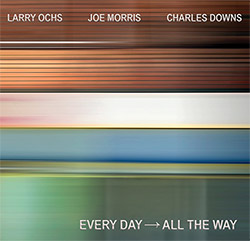


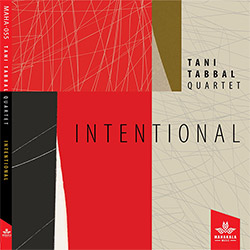
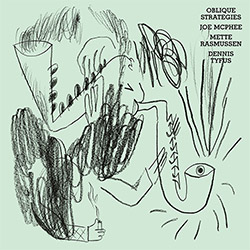


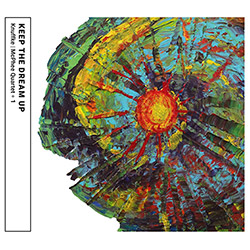
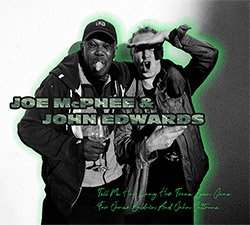
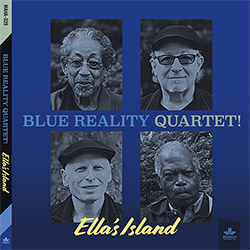
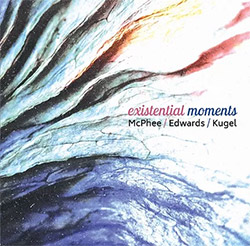
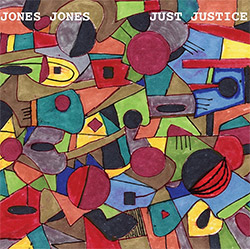





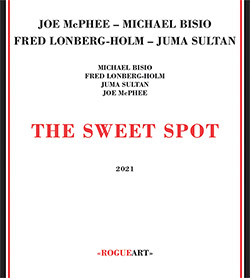

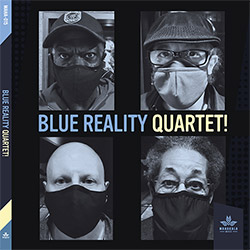

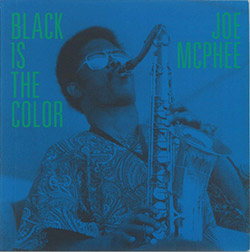
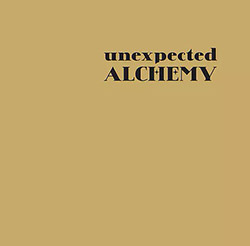
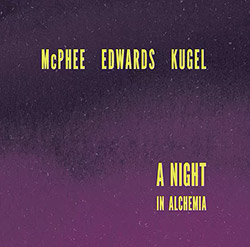

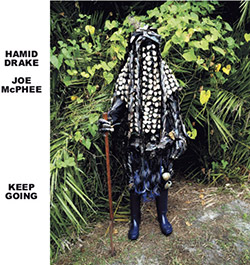




![BlueRing Improvisers: Materia [2 CDs]](https://www.teuthida.com/productImages/misc4/36513.jpg)








![Wheelhouse (Rempis / Adasiewicz / McBride): House And Home [VINYL]](https://www.teuthida.com/productImages/misc4/36462.jpg)
![+DOG+: The Light Of Our Lives [2 CDs]](https://www.teuthida.com/productImages/misc4/36009.jpg)


![Parker, Evan / Jean-Marc Foussat: Insolence [VINYL]](https://www.teuthida.com/productImages/misc4/36398.jpg)










![Deupree, Jerome / Sylvie Courvoisier / Lester St. Louis / Joe Morris: Canyon [2 CDs]](https://www.teuthida.com/productImages/misc4/36404.jpg)



![Eventless Plot | Haarvol: The Subliminal Paths [CASSETTE + DOWNLOAD]](https://www.teuthida.com/productImages/misc4/36232.jpg)










![Eventless Plot | Francesco Covarino: Methexis [CASSETTE + DOWNLOAD]](https://www.teuthida.com/productImages/misc4/36231.jpg)



![Das B (Mazen Kerbaj / Mike Majkowski / Magda Mayas / Tony Buck): Love [VINYL]](https://www.teuthida.com/productImages/misc4/36329.jpg)


![Eternities: Rides Again [CASSETTE]](https://www.teuthida.com/productImages/misc4/36247.jpg)
![Lopez, Francisco: Untitled (2021-2022) [2 CDs]](https://www.teuthida.com/productImages/misc4/36438.jpg)






![Money : Money 2 [2 CDs]](https://www.teuthida.com/productImages/misc4/35894.jpg)




![Klinga, Erik: Elusive Shimmer [VINYL]](https://www.teuthida.com/productImages/misc4/36258.jpg)
![CHANGES TO blind (Phil Zampino): Volume 9 - I Wave on a Fine Vile Mist [CD + DOWNLOAD]](https://www.teuthida.com/productImages/misc4/36061.jpg)

![Wallmart / Rubbish: Asset Protection [split CD]](https://www.teuthida.com/productImages/misc4/35900.jpg)


![+Dog+: The Family Music Book Vol. 5 [2 CDs]](https://www.teuthida.com/productImages/misc4/35897.jpg)
![Kuvveti, Deli : Kuslar Soyledi [CASSETTE w/ DOWNLOAD]](https://www.teuthida.com/productImages/misc4/36107.jpg)

![Brown, Dan / Dan Reynolds: Live At The Grange Hall [unauthorized][CASSETTE]](https://www.teuthida.com/productImages/misc4/36245.jpg)








![Palestine, Charlemagne / Seppe Gebruers: Beyondddddd The Notessssss [VINYL]](https://www.teuthida.com/productImages/misc4/36206.jpg)
![Palestine, Charlemagne / Seppe Gebruers: Beyondddddd The Notessssss [NEON GREEN VINYL]](https://www.teuthida.com/productImages/misc4/36207.jpg)

![Laubrock, Ingrid: Purposing The Air [2 CDs]](https://www.teuthida.com/productImages/misc4/35639.jpg)

![Yoko, Ono / The Great Learning Orchestra: Selected Recordings From Grapefruit [2 CDs]](https://www.teuthida.com/productImages/misc4/35841.jpg)









![Zorn, John / JACK Quartet: The Complete String Quartets [2 CDs]](https://www.teuthida.com/productImages/misc4/35609.jpg)

![Lonsdale, Eden: Dawnings [2 CDs]](https://www.teuthida.com/productImages/misc4/35480.jpg)



![Sorry For Laughing (G. Whitlow / M. Bates / Dave-Id / E. Ka-Spel): Rain Flowers [2 CDS]](https://www.teuthida.com/productImages/misc4/35985.jpg)

![Rolando, Tommaso / Andy Moor : Biscotti [CASSETTE w/ DOWNLOADS]](https://www.teuthida.com/productImages/misc4/36106.jpg)


![Electric Bird Noise / Derek Roddy: 8-10-22 [CD EP]](https://www.teuthida.com/productImages/misc4/35970.jpg)








![Elephant9 : Mythical River [VINYL]](https://www.teuthida.com/productImages/misc4/34624.jpg)



![Elephant9 with Terje Rypdal: Catching Fire [VINYL 2 LPs]](https://www.teuthida.com/productImages/misc4/35355.jpg)
![Deerlady (Obomsawin, Mali / Magdalena Abrego): Greatest Hits [VINYL]](https://www.teuthida.com/productImages/misc4/34876.jpg)







![Surplus 1980: Illusion of Consistency [CD]](https://www.teuthida.com/productImages/misc4/35069.jpg)
![Staiano, Moe: Away Towards the Light [VINYL + DOWNLOAD]](https://www.teuthida.com/productImages/misc4/35037.jpg)
![Coley, Byron: Dating Tips for Touring Bands [VINYL]](https://www.teuthida.com/productImages/misc4/17906.jpg)

![Lost Kisses: My Life is Sad & Funny [DVD]](https://www.teuthida.com/productImages/misc4/lostKissesDVD.jpg)